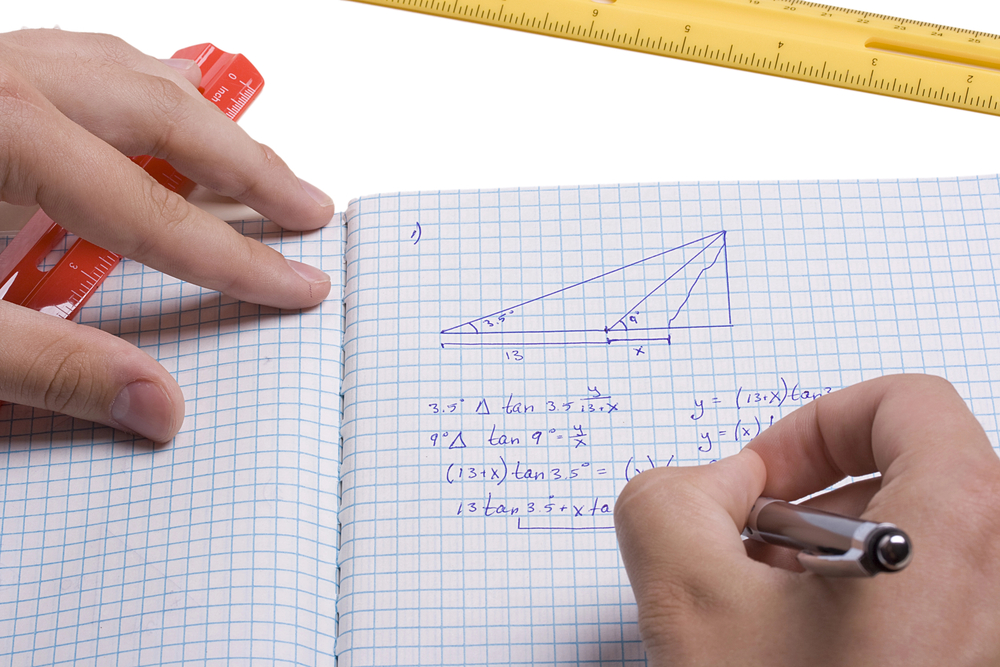 One of the biggest challenges for many students is retention. The topic is huge in education, and there are no perfect solutions to solve all retention problems. However, from years of teaching math, I have come to believe that there are three main strategies teachers and parents can use to significantly promote retention.
One of the biggest challenges for many students is retention. The topic is huge in education, and there are no perfect solutions to solve all retention problems. However, from years of teaching math, I have come to believe that there are three main strategies teachers and parents can use to significantly promote retention.
As a homeschooling parent, you need to know how to increase your child’s math retention, and it’s much more involved than simply “rote” memorization. While I believe there is a place for rote memorization, such as using flashcards, it should not be the only method employed. Also, doing lots of practice problems on a regular basis is another fundamental that all parents should be doing with their homeschooler. What I want to focus on are three main areas where you need to focus if you really want to “super charge” your child’s math retention. Ok, let’s get started with our first item – note taking.
1. Note Taking
Does your child take notes? If not, then you need to have them start immediately. The process of note taking is excellent for retention. During note taking, a student’s mind will focus on transferring information from a chalkboard or computer screen onto their paper. The actual physical mechanics of writing down notes is creating a memory path in our brains. Also, the better your child’s notes are organized and structured, the better their long-term retention and memory become. I have seen it over and over through many years of teaching; students that take great notes are the best test takers and get the best grades. So, if your child is struggling with retention, take a look at their notes and increase the standard of what you will accept as “good note taking”.
2. Teach Back
Teach back is one of the most effective things you can do to improve your child’s retention. Basically, “teach back” is having a child teach something or explain something back to you. For example, let’s say you’ve just finished studying how to add fractions, and you want to check your child’s understanding and retention.
You would say, “OK, Billy, can you teach me exactly how to add these two fractions? Just think of me as one of your friends who needs your help”. Now your child becomes the teacher, and you evaluate their explanations back to you and correct any wrong information.
In this example, your child would hopefully say something like, “well, to add two fractions, the denominators need to be the same. If the denominators are the same, then add the numerators…” As the parent, you need to be looking for detailed and correct explanations of the procedure. Many studies on retention suggest we remember the things we can teach the best. Listen, I’m sure if you asked your child how to operate an Xbox game, they could give you a Harvard speech on the topic. So don’t be afraid to put your child in a position to be a teacher when it comes to math. One last thing about teach back – take it slow and don’t lower your standards. You always want your child to teach exact procedures, and if they can’t, keep giving them feedback until they improve and can teach the topic back in a confident manner.
3. Spot Review
Ah yes, the good old-fashioned pop quiz or review. Indeed, reviewing is a must in math, and you should add it to your regular program of study just like you add a little salt to your food – here and there. My suggestion for reviewing is to not overdo it; in other words, pick a problem or two from a previous chapter and have your child do it. Do not practice “drill and kill,” the approach where you give your child a 10,000-problem worksheet on adding decimals so they master it. First, your child will end up hating math, and second, it’s just ineffective overkill. Be smart when you review and keep your child on alert that they could be tested on old material anytime. Like all of us, if we don’t “use it, we lose it,” so clearly spot reviewing is another essential ingredient for increased retention.
There is a big difference between doing well on a test right after you learn the material and doing well on the same test a month later. As a homeschool parent, you need to actively promote your child’s retention. Don’t assume that your child is retaining just because they are getting good grades – true mastery and retention need to be evaluated far after your child takes a test. Therefore, you need to ensure your child takes detailed notes and practices teaching back what they have learned to you. As you plan your lessons, make sure to add a problem or two from a previous chapter. I promise, if you make these suggestions a habit in your regular instruction, your child’s retention will jump significantly.
Final Thoughts
By focusing on these three key areas – note taking, teach back, and spot review – you’ll be equipping your child with effective tools not just for math, but for learning in general. Remember, it’s about building a foundation that promotes understanding and retention, leading to true mastery of the subject matter.






